(Audio Version here)
“Discourse analysis” is now most commonly associated with cultural studies and associated fields in the social sciences and humanities that focus on finely parsing elements of culture & language to detect power dynamics, biases and assumptions. It is associated with “Critical” approaches to studying culture and consequently with Critical Social Justice (or “woke”.)
However, in reality, we all analyse discourses all the time because this is what humans do as a ‘groupish’, pattern-seeking, allegiance-detecting, verbally-communicating species. We are finely attuned to word choices, phrasing and speaking points that provide information about what the speaker’s group allegiance is and can often detect this with considerable accuracy from a relatively small sample of speech. Once a few ‘discourse specific’ words or phrases have been spoken, our pattern-seeking, language centred brains detects that the individual is speaking into a specific cultural or political discourse and fills in the gaps, attributing a whole cluster of beliefs and positions to the speaker and thus a cultural tribe. We can imagine ‘discourses’ as something like clusters of concepts and visualise them as ‘word clouds.’ Those of us who are tuned into the political and cultural sphere carry a number of these word clouds related to cultural tribes and the way they speak in our minds and categorise people accordingly.
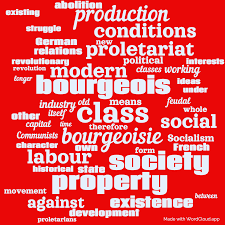
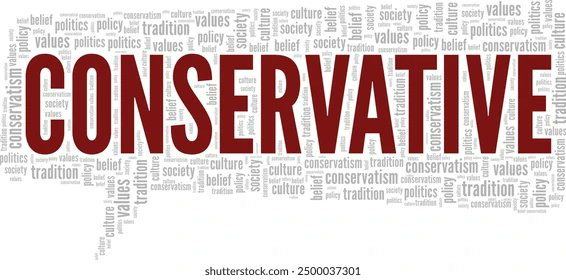
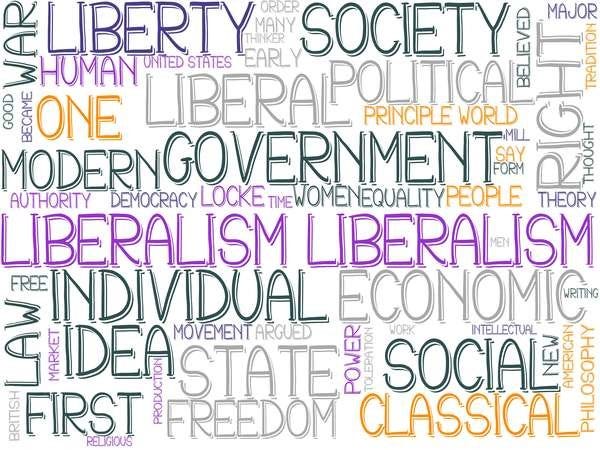
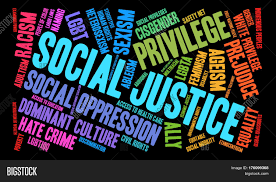
The human tendency to ‘discourse analyse’ can certainly cause problems and underlies much tribalism, reductionism, generalisation, collective blame and, ultimately, polarisation. Once a tribal mindset and polarisation has set in, the problems inherent in thinking in conceptual clusters intensify and become more uncharitable, reductionist and prejudiced. Genuine understanding of other viewpoints decreases. People start to make unwarranted and extreme assumptions based on a tiny sample of a discourse by filling in the gaps using the most extreme of views from it and joining dots that may or may not be there.
Once in this mindset, people are prone to responding not to the point being made but to any part of the discourse they perceive the other person to be speaking from. The most extreme example of this I have ever experienced occurred when I responded to a claim that the reason men as a demographic earn more money than women as a demographic is because women make men do all the dangerous and dirty jobs. I raised the issue of nursing and care work and pointed out that this is certainly dirty work and, before the development of effective infection control, was also a high risk profession. A man responded to this by accusing me of “Islamophilia.” How did he get there? I had disagreed with somebody from an anti-feminist cultural tribe on an explanation for the earnings gap. This had caused him to assume me to hold the position that the gap is caused by sexism and to be speaking into the discourse of the opposing tribe of most concern to him: Intersectional Feminists. Then, rather than responding to the specific point I had made, he selected another from the concept cluster that he felt was particularly strong - intersectional feminists being inconsistent in opposing the oppression of women when it is occurring within a minority group itself understood to be oppressed. Islam. In fact, the position I was coming from was one of having worked in nursing and social care for seventeen years, and I had been very critical of precisely this inconsistency. His discourse analysis had been far too cursery and his conclusion was wrong.
People highly tuned into discourses in this narrow & dogmatic way also typically start to police language in their own ideological group fiercely and are highly alert and reactive to different uses of language. They may also reduce the number of discourses they tune into to their own group and that of their most direct opposition and slot people into one of only two categories, becoming literally unable to see any other worldview at all. This is a problem particularly for liberals who, when trying to persuade a member of one group to be less authoritarian, are liable not to be recognised as a liberal but as a member of the opposing authoritarian group.
This is discourse analysis going wrong and is a trait of single-minded zealous people. We have probably all seen memes in which the Critical Social Justice far-left identifies anyone to the right of them as far-right and can see no difference at all between the social democratic left, classical liberals, traditional conservatives and fascists. However, this is also common among the far-right who can be seen identifying anybody to the left of them, including traditional conservatives and liberals from all over the political spectrum, as woke or a communist or, confusingly, both. This seems to be a form of projection where those with the most extreme views regard everybody else as an extremist of the kind that they most oppose. They cease to tune into the genuine discourses of the various groups with whom they disagree and therefore fail to understand their views as they really are and cannot consider their arguments. Once somebody is in this mindset, they are locked into an ideology and are likely to only become more blinkered and less tethered to social reality.
Nevertheless, I believe that, outside of blinkered tribal bias, our ability to see patterns in language, interpret subtext, fill in gaps and identify cultural tribes is generally extremely useful and this is probably why we are so prone to doing it almost subconsciously all the time. When people are unable to do this effectively, either because they are neurologically atypical in a way which affects their theory of mind or ability to detect social nuance or because they have moved to a different culture with unfamiliar discourses, they are at a profound social disadvantage and liable to make costly errors or inadvertently cause offence. The sweet spot, as always, is using this ability thoughtfully and carefully and neither denying it nor becoming reductionist and blinkered in it.
There is great value in deliberately familiarising oneself with different discourses and trying to understand the underlying values, principles and beliefs as they truly are. We can think of this as a kind of ‘cultural competence.’ Cultural competence was typically the term used for certain kinds of training for people who work in multicultural settings. I undertook it when I worked in social care assisting elderly people in their own homes, and learned practical things like how to prepare kosher or halal meals for a Jewish or Muslim client with dementia, but also about differences in formal manners and modes of address. Cultural competence is a valuable concept, I believe, because, unlike more recent forms of DEI training, it does not require adopting or affirming anybody else’s beliefs or values but simply having an accurate baseline understanding of what they are. This can very usefully be expanded from cultural differences to political or ideological differences. So many of our problems of political polarisation and hostility come down to a failure of this. You’re a conservative? Then clearly you are racist. A feminist? Blank-slatist man-hater. Left-wing? Obviously you hate your own country and want to impose wokeness or socialism on everyone. A liberal? You just want to be able to call people the n-word and pretend all social problems have been fixed (from the identitarian left). You’re just woke-lite and want unrestrained immigration and drag queens waving their penises at kids (from the illiberal right). This becomes a battle of reductionist narratives wherein people fight with versions of others that they have invented, and fail to engage with people and ideas as they really are.
Having a number of different accurate political frameworks in your mind and being able to present their fundamental beliefs in a form that would be recognised as accurate by the people who actually hold them is something that we can all benefit from practicing right now and would improve political discourse enormously.
Most traditional conservatives would recognise themselves in “I believe in the importance of cultural integrity and cohesion, respect for history and tradition, duty to family, community and country and personal responsibility.”
Most liberals would agree that they value individual liberty, freedom of belief and speech, the importance of viewpoint diversity and meritocracy and recognising that all individuals come into the world with the same right to life, liberty and the pursuit of happiness.
(Combine these two and you have the liberal conservative)
Most libertarians would say it is true to say that they hold those liberal values but also have a particular focus on the freedom of markets, the aim for a small government and the minimisation of taxes.
Socialists would overwhelmingly agree that their focus is on class inequality and preventing the exploitation of workers by a greater distribution of wealth to those whose labour production relies upon, and most would say that social ownership of the means of production was an overall aim.
Critical Social Justice activists (the woke) would mostly agree that they believe that social inequality is perpetuated by people having been socialised into accepting oppressive power dynamics like white supremacy, patriarchy, imperialism and cis/heteronormativity as normal, not even noticing them in themselves and having a responsibility to do so.
Gender critical feminists would overwhelmingly agree that they believe ‘gender’ to be an oppressive social construct that operates to constrain women and men into gender roles and stereotypes that are particularly harmful to women, and that gender identity is another manifestation of this.
Having an accurate baseline understanding of these positions does not require doing a deep dive into vast tomes of political philosophy but simply tuning into the different discourses that are easily available in everyday exchanges. Social media users can achieve this simply by ensuring that they follow a wide variety of people and simply observing how they talk about things and to each other online.
Holding a number of different political frameworks in one’s mind and being accurately tuned into their discourses (or word clouds) also builds good mental habits. Then, when thinking through or writing a stance one holds or an argument one intends to make, objections from various different ideological positions will present themselves, and can thus be anticipated and countered or relevant qualifications or adaptations made. Sometimes, this will result in changing your own mind before your thoughts make it out of your mouth or keyboard. More often, it will result in having a stronger, more thoughtful stance or argument that can both withstand critique and be persuasive to more people. This is because having an accurate understanding of where other people are coming from does not require capitulating to them, compromising with them or softening your own stance. It just means your disagreements will be more accurate and effective.





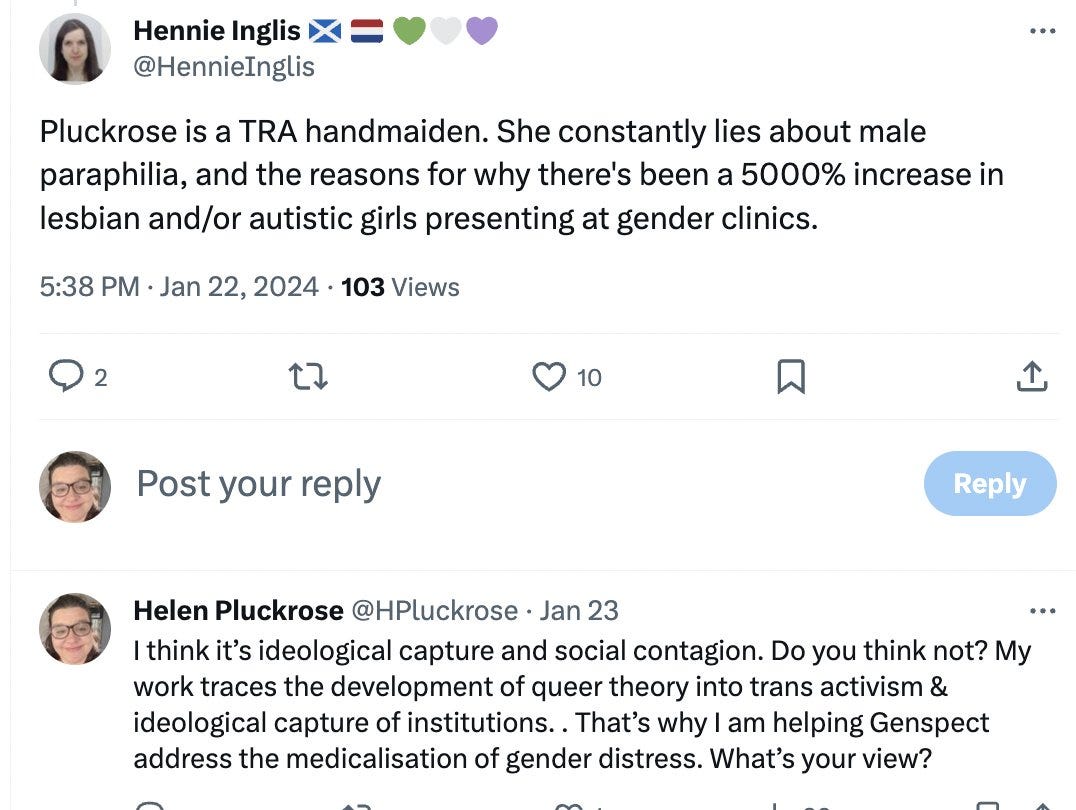
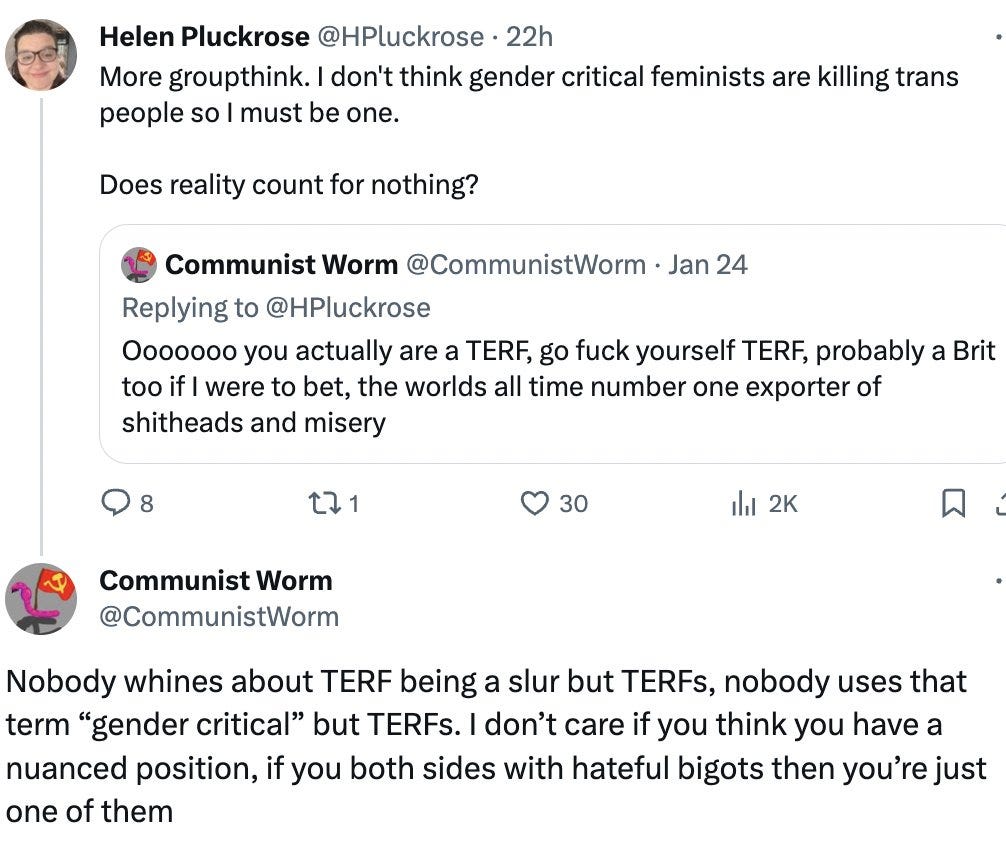
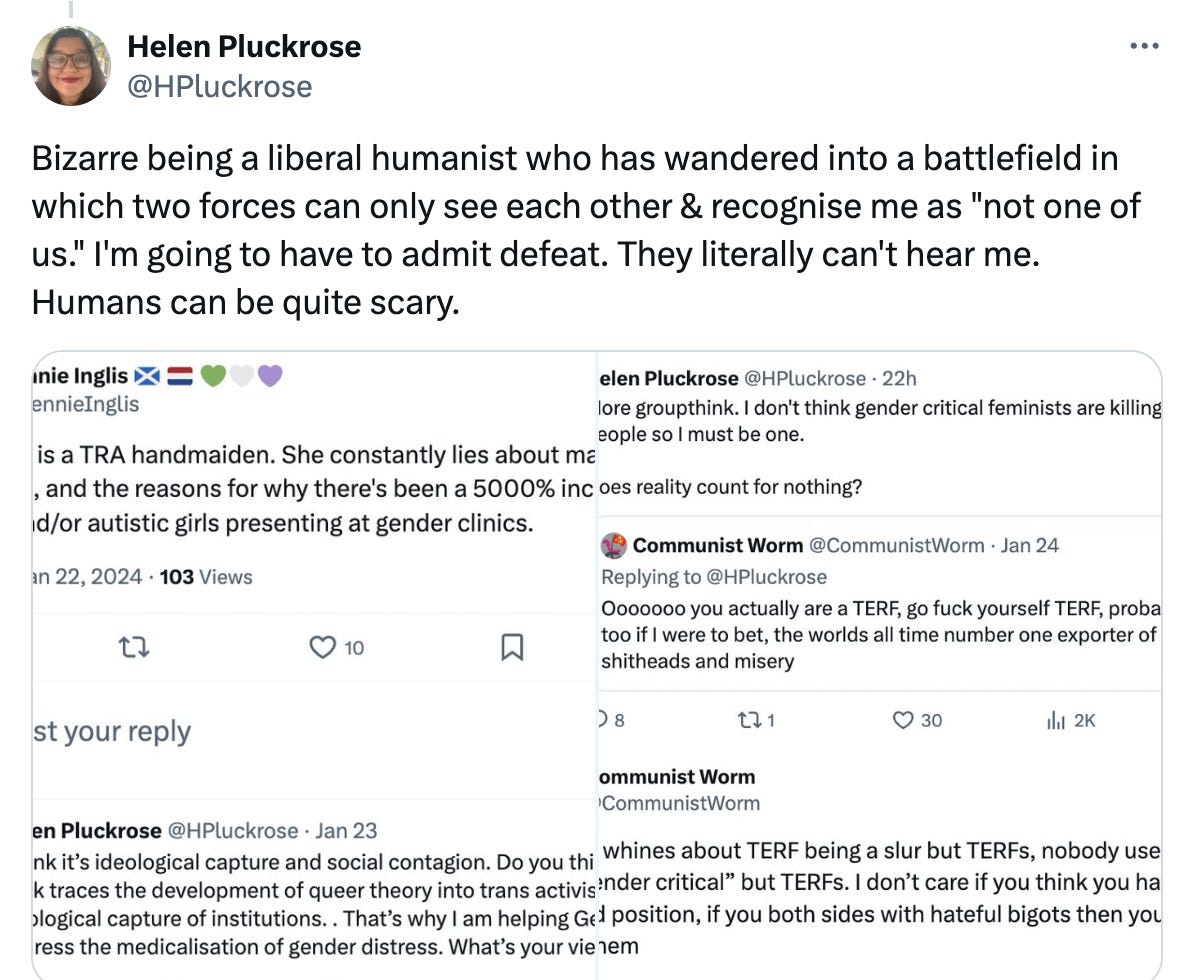
Is this related to Transaction Analysis, which is some academic guff taught to social workers so they can feel superior to their clients and ignore their actual needs?
This is one of those essays that makes explicit a bunch of half-formed ideas I've been carrying around my head for years. Thank you for writing it.
Would you say that being a "free thinker" boils down to being open to seeing merit in the values and assumptions inherent to different discourses, even apparently contradictory ones?